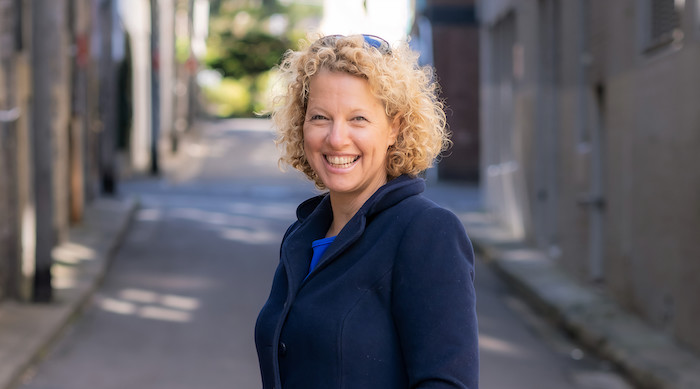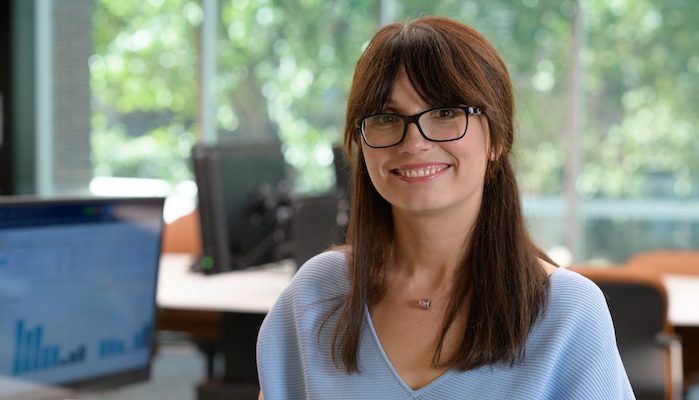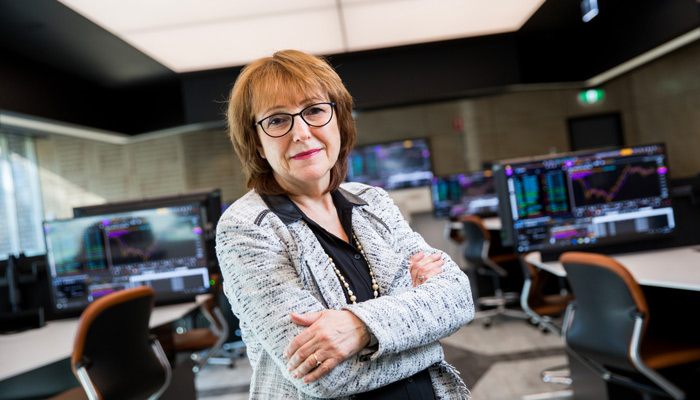A new study has found that employees with cancer prefer greater flexibility and more tailored workplace adaptions like part-time or remote work, rather than a rigid set of entitlements.

Good job: Work delivers important benefits to breast cancer survivors, including social connection and a sense of normality.
Dr Senia Kalfa from Macquarie Business School’s Department of Management interviewed Australian women who had survived breast cancer about their return-to-work experiences in research just published in the Journal of Work, Employment and Society.
“Most women I spoke to were not aware that, after 12 months continuous employment, they have the right to ask for flexible work arrangements from their employer – and often, this isn’t being offered,” Kalfa says.
Kalfa and her co-authors on the paper, Dr Layla Branicki from the UK's Open University Business School and Professor Stephen Brammer from the UK's Bath School of Management, argue that there’s both an economic case and a moral case for organisations to develop responsible return-to-work practices that better respond to individual needs.
More people return to work after cancer
“Australia’s relative five-year survival rate of 91 per cent and our high rate of female labour force participation at 61 per cent means the majority of people diagnosed with breast cancer will return to work,” Kalfa says.
Work delivers important benefits to breast cancer survivors, giving them purpose and dignity, financial wellbeing, social connection, self-esteem and a sense of normality, she says.
I’ve never experienced that kind of love and non-judgemental support, they lifted me up.
“Surprisingly, most women we interviewed didn’t leave work when they were first diagnosed, they took time off for treatment but they wanted to go back as fast as possible,” she says.
“Women with young children were more often the exception, partly as they wanted to spend time with their kids, but also their treatment can be tougher as cancers tend to be more aggressive in younger women.”
Surviving breast cancer to change careers
Noa Rein was taking her eight-year old twins shopping for school shoes, with her pre-schooler towing along, when her doctor called on her mobile to tell her she had breast cancer. “It was like a meteor had hit,” she recalls.

Career switch: Noa Rein (pictured) moved from lecturing in management to working in corporate human resources as a result of her cancer experience.
She was 36 and had recently moved her young family from Israel to Australia to take up a PhD scholarship and work as a part-time university lecturer.
She went through intensive treatment, from surgery to chemotherapy and radiotherapy.
“I was no hero, I was terrified,” says Rein, who credits "remarkable" support from her family and her children’s school community of South Coogee Public School for keeping her going.
“I’ve never experienced that kind of love and non-judgemental support, they lifted me up,” she said.
Women returning to work after a cancer diagnosis face further health and economic disadvantages.
Noa took time off work for surgery and early rounds of treatment and put her research on hold, and though she tried to keep lecturing, chemotherapy treatment affected her short-term memory and she had to give that up too.
During the two years Rein was fighting for her life, her research was lost through a major computer mishap and she then developed post-cancer chronic fatigue.
While her supervisor was very supportive, she says the cancer experience felt very isolating.
“Life-threatening illness is a very intimate experience,” she says – and this prompted her to change careers from lecturing in management, to working in corporate human resources.
Wild variation in how employers respond
Rein’s experience is not unusual, Kalfa says.
Women returning to work after a cancer diagnosis face further health and economic disadvantages and are more likely to experience precarious, part-time, and temporary employment – which can add to their stress levels and impact on their health.

Above and beyond: Dr Senia Kalfa (pictured) says employers just sticking to return-to-work practices that meet the minimum regulations is not enough.
Cancer survivors are 1.4 times more likely than other individuals to be unemployed, can sometimes take two years or more before returning to work, and on their return can face a loss of self-confidence and deteriorating career prospects, she adds.
Kalfa, Branicki and Brammer say the interviews showed that breast cancer survivors experienced wildly varying responses from different organisations. “Their work capacity was variously ignored, bureaucratised, challenged, micro-managed, recognised, and respected,” she says.
The researchers grouped employer responses into four main types. Some adhered strictly to their legal obligations – a common approach in public sector organisations, she says. “They said, 'you are entitled to X', and they stayed within those parameters.”
Some employers tried to accommodate the needs of individual breast cancer survivors, because the treatment and the cancer itself affects women in different ways.
Other employers took an economic approach. “They said, 'your role is really valuable to the company, it's hard to replace you. So how can we make this work for you?' ”
Some employers took a more moral approach, which the researchers labelled ‘responsible return to work’. “They tried to accommodate the needs of individual breast cancer survivors, because the treatment and the cancer itself affects women in different ways and the response needs to be almost tailored to how the body reacts,” Kalfa says.
A few employers took an approach that went above and beyond, tagged the 'discretionary demand dimension', where colleagues attended medical appointments or helped with home life duties.
Kalfa says the study shows that just sticking to return-to-work practices that meet the minimum regulations isn’t sufficient to meet the needs of most people with breast cancer.
“There is both a strong economic case and a strong moral case for flexibility and for tailoring a solution to the person’s needs,” she says. “Just ask them.”
Dr Senia Kalfa is a Senior Lecturer in the Department of Management at Macquarie Business School and a member of Macquarie's Centre for Workforce Futures



